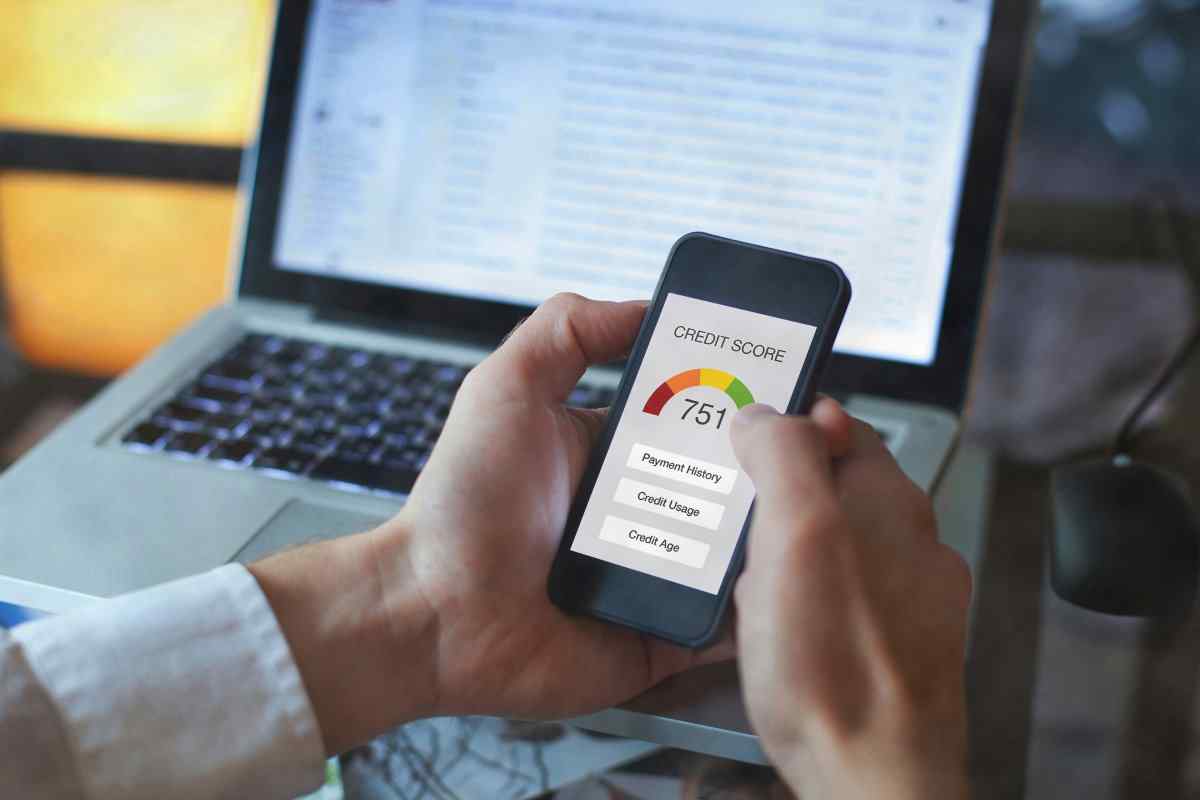How Does Refinancing Work on a Car?
What if you could go back in time and buy your car with today’s interest rates? Well, you can’t time travel, but you may be able to take advantage of better rates. Refinancing your car loan can lead to less interest when:
- The federal interest rate goes down
- The buyer’s credit score goes up
- You find a co-signer
- There are special promotions available
Refinancing a car loan is replacing the existing loan with a new one with different terms. Typically, this is done through a different lender, and your car acts as collateral to secure the new loan. In general, auto refinancing is a good choice when it helps you save money in interest.
How to Refinance Your Car?
 Refinancing your car can be a great option to obtain more favorable interest rates and loan terms. Ultimately, this can help you save a good chunk of change on your monthly car payments. Follow these four steps to learn how to refinance your auto loan properly.
Refinancing your car can be a great option to obtain more favorable interest rates and loan terms. Ultimately, this can help you save a good chunk of change on your monthly car payments. Follow these four steps to learn how to refinance your auto loan properly.
Step 1: Get Your Documents Ready
To submit your auto loan refinancing application, you need to gather some information. Some of the documents you may need to present with your application include:
- Driver’s license
- Car registration
- Vehicle identification number (VIN)
- Proof of income
- Social Security number
- Proof of residence
- Proof of insurance
- 10-day payoff statement
You can apply for an auto loan refinancing from a traditional brick-and-mortar lender or an online lender. Having these documents before starting the new loan process will help you save time.
Step 2: Get Pre-Qualified at Top Providers
You can be pre-qualified based on factors like your credit score and income information. Lenders will conduct credit checks to verify the applicant’s identity and financial standing for loan eligibility. Credit checks also play a role in calculating the loan terms and interest rates. Typically, a higher credit score affords the borrower a lower interest rate with a longer term. However, if you have a lower credit score, many lenders may still be willing to work with you to offer a loan that meets your needs.
Don’t confuse prequalification with preapproval because the process and terminology vary. Prequalification gives the applicant an estimate of the loan terms and rates they may be offered. Prequalification is usually based on the self-reported information the applicant supplied. Preapproval is a more official process that involves the lender verifying personal and financial information. Additionally, preapproval also provides approximate loan rates and terms for the applicant.
Step 3: Compare Offers
 There are several components to consider before choosing the right lender. First, you can shop around to see what kind of prequalification offers you receive, if any. Lenders may only conduct a soft credit check to determine prequalification. Soft credit checks may not negatively affect your credit score. Many consumers compare loans from multiple lenders.
There are several components to consider before choosing the right lender. First, you can shop around to see what kind of prequalification offers you receive, if any. Lenders may only conduct a soft credit check to determine prequalification. Soft credit checks may not negatively affect your credit score. Many consumers compare loans from multiple lenders.
Comparing finance offers is a way to find savings and try to find a good deal.
When comparing your offers, take a close look at the following details:
- Loan amount
- Monthly principal
- Interest rate
- Repayment term
- Additional Fees
- Insurance payment (if any)
Compare the Annual Percentage Rate (APR) of the offers as it presents a more accurate cost of borrowing by factoring in the interest rate and some of the fees. After comparing the offers, compare the lender’s customer reviews and business rating. Ensure that the lender is licensed and has a reputable track record of customer satisfaction.
Step 4: Make Your Decision
Now that you understand the cost of borrowing, you can finally make an informed decision. Consider creating a budget to see how much you can afford in monthly payments. Then, compare the offers you received to see which lender provides a loan option that fits comfortably in your financial plan.
Pros and Cons of Refinancing a Car
 Consider weighing out the pros and cons of refinancing a car before taking any action. It will help you make wiser decisions and understand whether it is the right option for your needs.
Consider weighing out the pros and cons of refinancing a car before taking any action. It will help you make wiser decisions and understand whether it is the right option for your needs.
Advantages of Refinancing a Car Loan
-
Lower Interest Rate
One of the most common reasons to refinance a car loan is to get a lower interest rate. Market rates fluctuate over time, and when they have decreased, it presents opportunities to save on interest. Also, if your credit score has improved since you first bought your car, you may qualify for better rates from lenders because you present less risk to them.
-
Lower Monthly Payment
Refinancing to a lower car interest may lower your monthly payment if you keep the same repayment term. If you want to reduce your monthly payment, you may get a new loan with a longer repayment term. Although this means higher interest charges, it may be worth it in the long run if your current monthly car payment is too large for your budget. You can also consider leasing a car instead of financing it.
-
Pay Your Loan Off Sooner
Refinancing can also help you get a better repayment term. If you are eager to repay your loan, you can shorten the term to pay it off quicker. Additionally, shorter terms often come with lower interest rates, which can help you save even more. However, beware that monthly payments may be more expensive.
-
Get Cash from Your Equity
If you are facing an emergency, you can opt for cash-out refinancing. You can refinance the original loan and receive cash to address other expenses using your car’s equity. For example, if your vehicle is worth $15,000 and you have $7,000 remaining to pay on your loan, you may be able to get a refinance loan for $10,000 and take the $3,000 in cash. However, having less equity in your vehicle may decrease your chances of getting cash.
Disadvantages of Refinancing a Car Loan
-
Higher Interest Rate
If you refinance to a longer loan term to get lower monthly payments, you may end up paying more interest over the life of the loan. Even if your interest rate is lower than your old loan, it may not offset the cost because the interest has more time to accrue.
-
Pay Higher Fees
Your new lender may charge additional fees on your loan, such as early repayment penalty on your former loan, closing fees, application fees, or transfer fees. Your state may also charge to re-register your car. Luckily, not all lenders charge the same costs on their loans. However, you should ensure that all costs are clearly defined before refinancing your car. This can help you save on additional costs that may accompany refinancing.
-
Owing More Debt
If you refinance your auto loan to extend your term or take cash out of your equity, you may accumulate more debt than your vehicle’s worth. And in case you want to sell or trade in your car, you may have to pay the difference. Also, if you refinance your loan to extend its life, your car may depreciate below what you already owe.
When to Refinance Your Car?
 After weighing out the pros and cons of refinancing a car loan, you should weigh out the timing and your current situation. The best time to refinance is when it can ultimately save you money. Here are some cases where refinancing may make sense:
After weighing out the pros and cons of refinancing a car loan, you should weigh out the timing and your current situation. The best time to refinance is when it can ultimately save you money. Here are some cases where refinancing may make sense:
Your Credit Has Improved
The better your credit, the lower your interest rate will probably be. If your credit score has improved since taking out your initial car loan, refinancing may help you save money on interest even if the market rates haven’t changed.
Interest Rates Have Dropped
If auto loan rates have decreased since you took out your loan, refinancing will help you save on interest. But, again, weigh out the potential for savings against any costs and fees involved with refinancing.
Your Loan is Still New
Older car loans often get rejected for refinancing. Also, if you have been paying off your auto loan for a few years, you will likely not benefit much if you refinance. So, start applying while your loan is still new to get the most benefit out of it.
You Need Lower Monthly Payments
If you have a tight budget and want to reduce your car payment, you can refinance your car loan to a longer term. This way, your monthly payments will be lower, with or without a lower car interest rate. However, keep in mind that while you are paying less per month, you may end up paying more overall.
Tips for Refinancing
 Now that you know the answer to the question about how a car refinancing works, its advantages and disadvantages, and when to refinance, check out these three tips that may help you save more.
Now that you know the answer to the question about how a car refinancing works, its advantages and disadvantages, and when to refinance, check out these three tips that may help you save more.
Check for Hidden Fees
Before refinancing, ask your lender about all applicable fees to consider whether they will impact your overall savings. For example, some lenders charge a processing fee which can hurt your potential interest savings. Also, some lenders may have a prepayment penalty in place, which means you will be charged an additional fee for repaying a loan early.
Shop Around

Shop around and compare terms and interest rates from multiple lenders. Every lender has its own formulas for calculating interest rates, so try to get more than one quote; it won’t hurt your credit score. Also, getting quotes from more than one lender will help you choose the one with a better interest rate and more favorable terms to save money.
Understand How Your Credit Will Be Impacted
When you apply for refinancing, lenders will check your credit score and history. Most of these will be soft inquiries, but a hard one may sneak in the mix. This can cause your credit score to drop slightly. It can also cause your credit score to drop more if you want to apply to several lenders to find the one with the lowest rate. To keep the hard inquiries from hurting your credit score, submit all your loan applications during the same timeframe. Most credit scoring models treat loan inquiries between a 14-to-45-day period as one inquiry.
Moreover, upon closing the loan that you are refinancing, your credit score may take another hit. But if your closed account is closed in good standing, it will lessen the blow to your score. On the bright side, making timely payments on your new loan may improve your credit score over time.
Sum up
The goal of refinancing is to qualify for a better loan term or rate and save money in the long run. You can refinance your car loan whenever you want, but this is usually done when the new loan will offer a significant amount in savings. Typically, borrowers benefit from refinancing when market interest rates have lowered or their personal credit and financial standing have improved.
FAQ
What Happens When You Refinance a Car?
Refinancing a car means replacing your current loan with a new one. Refinancing can offer significant savings in interest rates, better repayment terms, or lower monthly payments.
Is It Worth It to Refinance a Car?
Determining whether refinancing will benefit you depends on your personal financial standing. Every borrower has different needs and conditions. Therefore, review your finances and outline how a new loan can improve your needs. Typically, it is worth refinancing a car in the following situations:
- Credit score has improved since getting your initial loan.
- Interest rates for auto loans have decreased since you got your loan.
- You’re struggling with the monthly payment and want to reduce it.
- You financed your current auto loan through a dealership and would have qualified for a lower-rate loan with a different lender.
- Your existing loan contract doesn’t include a prepayment penalty clause.
Can You Refinance a Car Loan with the Same Bank?
Yes, it is possible to refinance a car loan with the same bank or credit union in some cases. However, it might be good to shop around and compare different refinancing deals.
Who Pays Off My Old Car Loan When I Refinance?
Your new lender will likely handle the payment of your old car loan. But make sure that your old lender doesn’t have a prepayment penalty in place.





